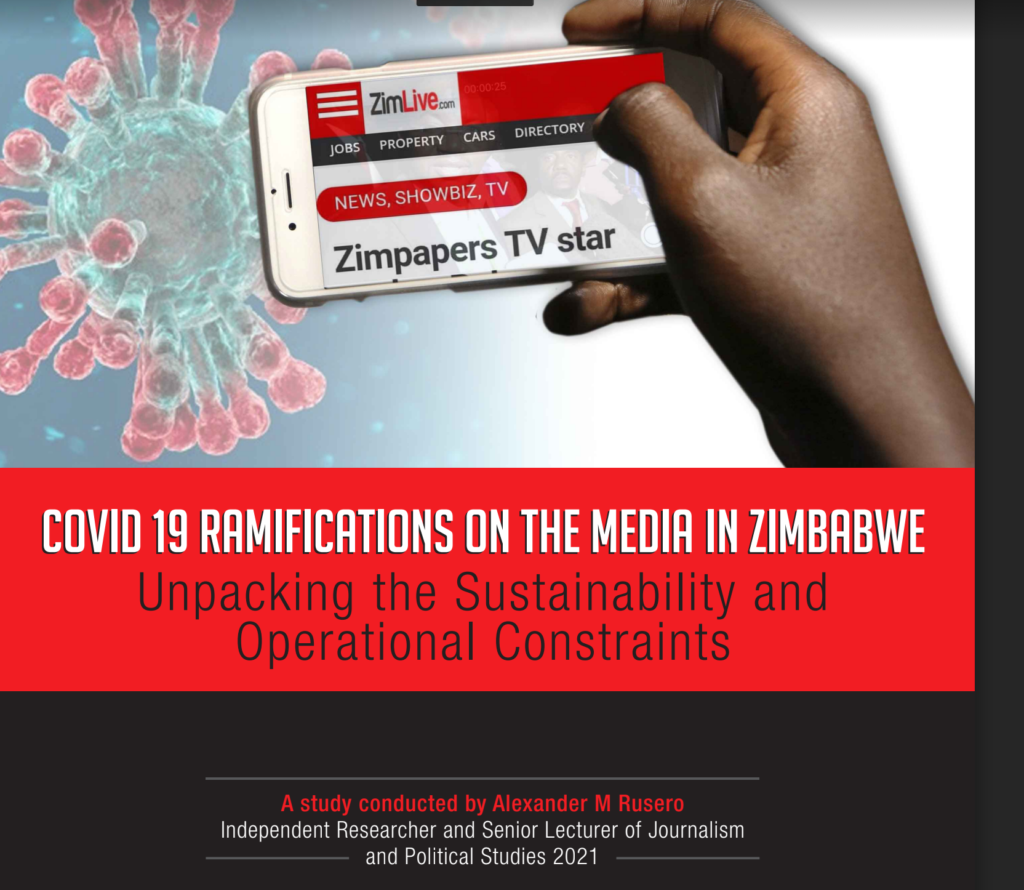A study conducted by Alexander M Rusero Independent Researcher and Senior Lecturer of Journalism and Political Studies 2021.

Executive Summary
Like any country in the world, Zimbabwe was taken by surprise by the advent of the global pandemic of coronavirus. The 2019 novel coronavirus was first detected in Wuhan, China in late December 2019 and on February 11, 2020, the World Health Organisation (WHO) announced that the disease caused by this CoV is named as “Covid-19” which is the acronym of “coronavirus disease 2019” (Wu and McGoogan, 2019).
The absence of previous experience in handling the 2019-nCoV was part of the reason why it was hard to contain its spread. This was made worse by the amount of misinformation and false news circulating on social networks which resulted in much health anxiety and panic behaviour.
In Zimbabwe, mainstream media’s handling of the pandemic was also found wanting largely due to lack of preparedness, training, fear and inadequate experience of journalists to cover pandemics of that magnitude. Apart from the issues of sustainability and operational constraints which are topical in the context of this study, Covid-19 impacted a lot in terms of ethical compliance and proliferation of fake news.
There have been huge constraints and enormous pressure exerted on the media such that its sustainability remains at risk with the constraints threatening the total crippling of the traditional media altogether. Journalism is an art of the depiction of information which is of value to the people pertaining their localities and external environment, in terms of what is happening around them. Such noble roles and societal expectations on the media make it an indispensable source of valuable information which helps the society to remain enlightened.
However, the outbreak of disasters and disease are fast acting as an eye opener that the media remains one of the first casualties of pandemic outbreak. This study was conducted at the backdrop of the advent of Covid-19 and sought to assess the extent at which the Covid-19 ramifications have had in terms of both the sustainability and operational constraints on mainstream media.
Through the deployment of qualitative research techniques, the study unearthed an alarming scenario where mainstream media in Zimbabwe, particularly the print media is on the verge of extinction for the umpteenth time. Without a clear cut rescue package and evolving to digital adaptabilities, Zimbabwe’s traditional media is slowly dying a natural death, which when it occurs will render thousands jobless.
Click to download full study

